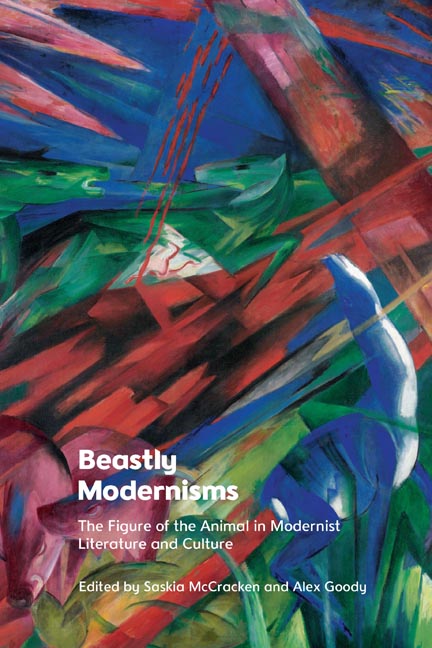Book contents
8 - The Barking Dog and Crying Bird in Partition Stories: Beastly Modernism and the Subaltern Animism of Manto, Rakesh and Anand
Published online by Cambridge University Press: 21 October 2023
Summary
Literary writings on the Partition of India generally portray the horrific violence of the watershed event as beastly instead of tracing it to the beast in the human species. This deflection, with its scapegoating of beasts and Othering of beastliness, masks the grisly deportment of humans towards the Other. In an exception to this trend of blaming the beasts, some modernist writers from India, like Saadat Hasan Manto, Mulk Raj Anand and Mohan Rakesh, appeal to ‘subaltern animism’ (Narayanan 2017: 488). Narayanan derives this notion of subaltern animism from the concept of subaltern urbanism to recognise the citizenship, agency and resistance of the nonhuman animals in Indian urban spaces in line with the personhood and agency of the marginalised and dispossessed humans in Indian towns and cities.
Subaltern animism does not, however, entail a liberatory promise as much as ‘a sensibility toward the nonhuman that has left vestiges among subaltern peoples’ (Keller 2005: 129). Although it cannot recover a lost relational living, it does underscore the need for a relational epistemology in the face of what Catherine Keller calls the theology of empire that explains the killing of people and wildlife as manifest destiny and justifies pre-emptive action and demonisation of the Other. The Indian modernist writers I explore in this chapter depict the trauma of Partition violence in deference to a relational epistemology. As they do so, they use disjunctive irony which helps reveal the shared embodiment – animality and humanity – in a paradoxical poise, thereby heightening the effect of both irony and trauma. The intensification of irony and trauma by their mutual interactions, shocks the reader into a critical engagement with their own animality – a compelling confrontation which recovers subaltern animism from the margins of humanism. The beastly modernism of Manto, Rakesh and Anand acknowledges the shared conditions of human and animal existence, including their marginalisations. My exploration of the language of beastly modernism here first considers two of Manto’s stories in Urdu, a vignette titled ‘Sharing the Loot’ (1948) in Black Margins and the ‘The Dog of Tetwal’ (1951), then Anand’s story in English ‘The Parrot in the Cage’ (1954), and finally Mohan Rakesh’s two stories in Hindi – ‘The Owner of the Rubble’ (1957) and ‘God’s Dog’ (1958).
- Type
- Chapter
- Information
- Beastly ModernismsThe Figure of the Animal in Modernist Literature and Culture, pp. 143 - 158Publisher: Edinburgh University PressPrint publication year: 2023



